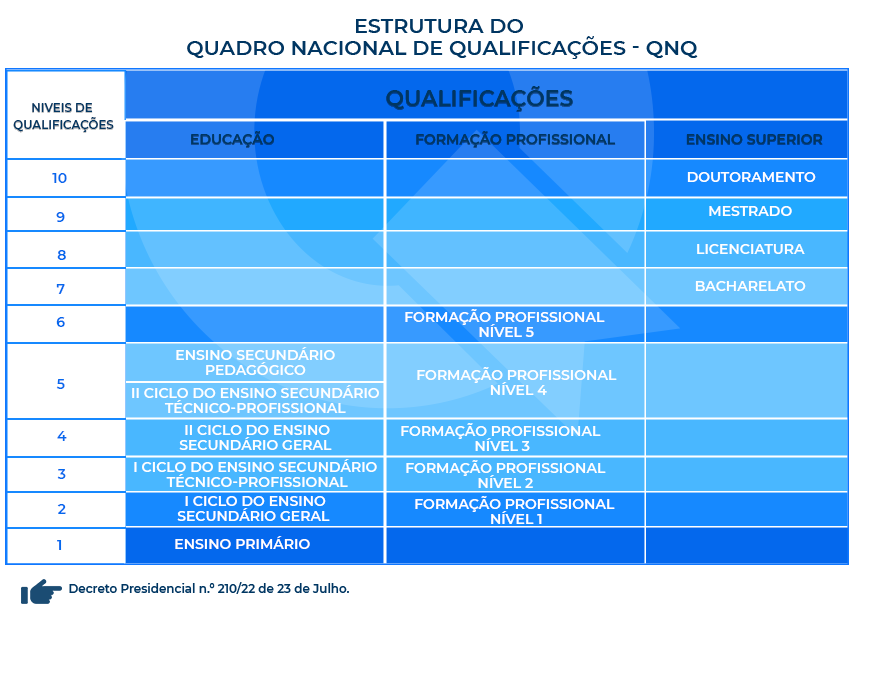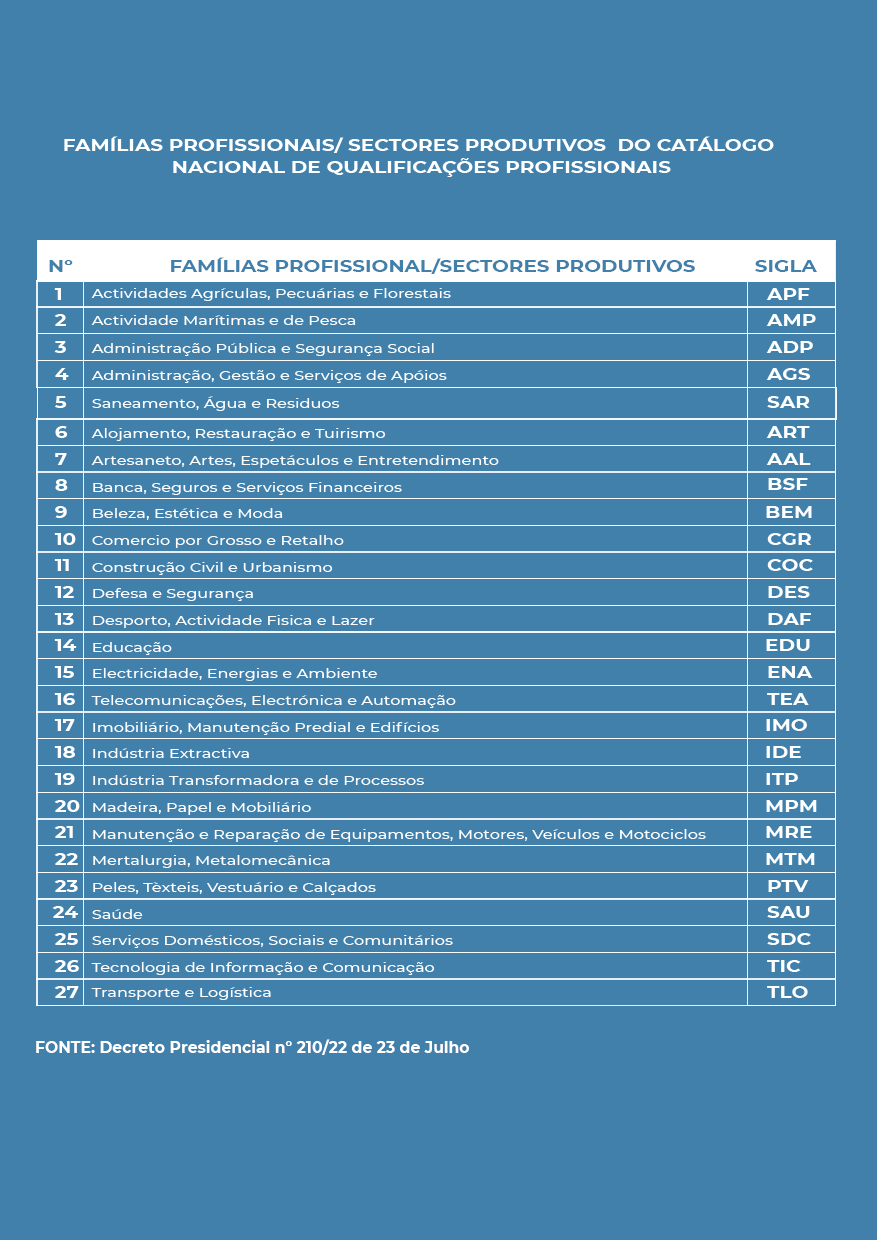Sectoral Councils for Qualifications
Its objectives are:
- To support INQ in the design of strategic and essential qualifications for the different sectors of the economy as a response to the challenges of the labour market, based on the methodological guidelines for the development of qualifications.
- Identify the needs for updating the CNQP, as well as present proposals to the INQ concerning the inclusion and withdrawal of qualifications, in function of their specialised technical knowledge about the sector or professional activity they represent.
The Sectoral Qualifications Councils are composed of:
- Representatives of the Institutes Implementing policies related to education and vocational training;
- Specialists appointed by the Ministerial Department responsible for the sector of activity covered;
- Representatives of the Regulatory Authorities for Access to and Exercise of Professions and Professional Activities of the different sectors;
- Representatives of Trade Union Confederations and Associations, as well as representatives of Employers, Business and Industrial Confederations representing the sectors of activity;
- Representatives of Professional Associations of the activities covered by the CSQ;
- Trainers of Vocational Training Centres of public, private and co-financed management;
- Teachers of Technical-Vocational Education Providers of public, private and subsidized management;
- Reference companies and business groups in their respective sectors of activity;
- Independent national and international experts of recognised merit in sector-specific fields.
National Qualifications Framework
The NQF has been in force since 23 July 2022, having been approved as part of the creation of the National Qualifications System (Presidential Decree no. 210/22, of 23 July).
This instrument of the National Qualifications System aims to:
- Integrate and articulate the qualifications obtained within the scope of the different Education and Teaching Systems, and Vocational Training, as well as those obtained through professional experience or non-formal and informal learning;
- Improve the transparency of qualifications by enabling the identification and comparability of their value in the labour market, education and training, as well as in other contexts of personal and social life;
- Allow the transfer and accumulation of credits in Education, Vocational Training and Higher Education, when possible, in order to enhance the mobility of citizens and facilitate the recognition of skills acquired throughout life;
- Promote the recognition, validation, certification and quality of the qualifications obtained;
- Enable the comparability of national qualifications with those of other countries;
- Promote links and/or referrals to other qualifications.
National Catalogue of Professional Qualifications
The CNQP is a dynamic instrument and integrates skills based and learning outcomes-based qualifications. For each of the qualifications, the respective competence and training benchmarks and the level of qualification are defined according to the NQF.
The creation of the CNQP allows:
- Facilitate the adaptation of technical education and vocational training to the needs of the productive system;
- Enable the implementation of processes of recognition, validation and certification of skills acquired throughout life;
- Promote the integration, development and quality of training offers in technical education and vocational training;
- Contribute to transparency, labour market unity and labour mobility;
- Identify, define and manage professional qualifications, establishing the appropriate content for training;
- Provide educational, vocational and professional information and guidance;
- Identify, define and manage professional qualifications, establishing the respective competence and training benchmarks and the instruments leading to the implementation of processes of recognition, validation and certification of competences.
Process of Recognition, Validation of competence (RVCC)
RVCC processes aim to:
- To allow the evaluation and adequate recognition of the knowledge and skills necessary for personal development and the labor market;
- To raise the basic level of qualification of the economically active population;
- Enable school, professional progression and socio-professional integration;
- To offer new opportunities to groups of the population with experience, but without qualifications and without complete schooling.
From this perspective, RVCC processes are aimed at young people and adults, with proven professional experience and competences. Currently, the legal act that regulates the matter regarding the processes of Recognition, Validation and Certification of Competences is in elaboration.




